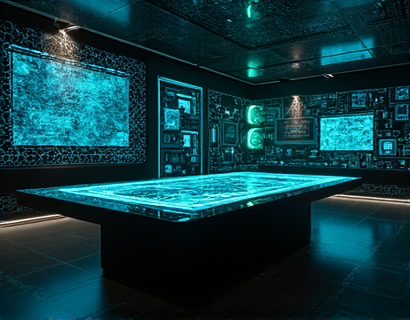Ancient Wisdom Uncovered: Exploring Historical Insights and Cultural Heritage for a Deeper Understanding
The study of ancient civilizations and their cultural heritage offers a profound lens through which we can view the development of human society. This exploration is not merely an academic pursuit but a journey into the very roots of our contemporary world. By delving into the historical wisdom of bygone eras, we can uncover insights that bridge the gap between past and present, enriching our understanding of the complex tapestry of human history. This article aims to guide history enthusiasts and cultural seekers through a comprehensive examination of ancient knowledge, highlighting its relevance and the lessons it imparts to modern times.
Historical wisdom is embedded in the artifacts, texts, and traditions left behind by ancient cultures. These remnants serve as windows into the minds and lives of our ancestors, providing valuable lessons on governance, social structures, spirituality, and daily life. The ancient Egyptians, for instance, left behind monumental architecture and intricate hieroglyphs that reveal their advanced understanding of mathematics, astronomy, and medicine. Their belief in an afterlife influenced their societal norms and architectural marvels, such as the pyramids, which were not just tombs but also symbols of power and divine right.
The Mesopotamian civilization, often referred to as the cradle of civilization, offers another rich source of historical insight. The Sumerians, Babylonians, and Assyrians developed sophisticated legal codes, such as Hammurabi's Code, which laid the foundation for modern legal systems. Their advancements in writing, with the invention of cuneiform, enabled the recording of laws, literature, and historical events, preserving knowledge for future generations. The ziggurats they built were not only religious centers but also showcased their engineering prowess and understanding of urban planning.
In the Indus Valley, the Harappan civilization demonstrated remarkable urban planning and social organization. The cities of Harappa and Mohenjo-Daro featured advanced drainage systems and standardized weights and measures, indicating a high level of societal sophistication. The seals and pottery found at these sites provide clues about their trade networks and religious practices, highlighting the interconnectedness of ancient cultures. The mysterious script of the Harappans remains a subject of fascination, offering a glimpse into a civilization that was ahead of its time in many aspects.
The ancient Greeks are renowned for their contributions to philosophy, democracy, and the arts. Philosophers like Socrates, Plato, and Aristotle explored fundamental questions about existence, ethics, and knowledge, shaping Western thought for centuries. The Athenian democracy, though limited in scope, introduced the concept of citizen participation in governance, an idea that continues to influence modern political systems. The Parthenon, a temple dedicated to Athena, stands as a testament to their architectural and artistic achievements, embodying the ideals of harmony and balance.
Roman civilization, with its vast empire and legal system, left an indelible mark on the Western world. The Romans excelled in engineering, constructing roads, aqueducts, and public baths that facilitated the movement of people and resources. Their legal code, particularly the Twelve Tables, provided a framework for civil law that has influenced legal systems worldwide. The Roman Empire's ability to assimilate and integrate diverse cultures contributed to its longevity and the spread of Latin, which became the basis for many modern languages.
Asian civilizations, such as ancient China and India, offer profound insights into philosophy, religion, and governance. Confucianism, developed by Confucius, emphasized moral virtue, social harmony, and the importance of education. These principles shaped Chinese society and governance for millennia, influencing everything from family structures to statecraft. In India, the Vedic period saw the emergence of complex religious and philosophical systems, including Hinduism, Buddhism, and Jainism. The intricate architecture of temples and the rich literary traditions, such as the Mahabharata and Ramayana, reflect the deep spiritual and cultural heritage of the region.
The Mayan civilization in Mesoamerica is another fascinating example of ancient wisdom. Their calendar systems, including the Long Count calendar, demonstrated advanced astronomical knowledge. The Mayans also developed a sophisticated writing system and created impressive cities like Tikal and Chichen Itza, which featured grand pyramids and ball courts. Their understanding of mathematics and astronomy was integral to their religious practices and agricultural cycles, showcasing the interconnectedness of knowledge in ancient societies.
Exploring these ancient civilizations reveals a common thread: the quest for meaning, order, and connection with the divine. Whether through monumental architecture, legal codes, or philosophical treatises, these cultures sought to understand their place in the universe and leave a lasting legacy. The lessons derived from these historical insights are invaluable for modern society, offering perspectives on sustainability, governance, and human potential.
One of the key takeaways from ancient wisdom is the importance of balance and harmony. The Chinese concept of Yin and Yang, for example, illustrates the interdependence of opposing forces and the need for equilibrium in all aspects of life. This principle can be applied to contemporary issues such as environmental sustainability, where recognizing the balance between human activity and natural ecosystems is crucial. Similarly, the Roman emphasis on public works and infrastructure highlights the importance of investing in the collective well-being, a lesson relevant to modern urban planning and social services.
Another significant lesson is the value of knowledge and education. The Greek emphasis on philosophy and critical thinking laid the foundation for the scientific method and the pursuit of knowledge as a noble endeavor. In today's information age, the importance of critical thinking and lifelong learning remains paramount. The ancient libraries of Alexandria and Pergamon, which collected and preserved knowledge from across the known world, serve as a reminder of the power of knowledge to transcend time and borders.
The cultural heritage of ancient civilizations also provides a rich source of inspiration for art, literature, and design. The aesthetic principles of Greek sculpture and Roman architecture continue to influence modern art and architecture. The intricate patterns and motifs of Mesopotamian and Mayan art inspire contemporary designers and artists. By studying and appreciating these cultural expressions, we can gain a deeper understanding of the human experience and the universal themes that connect us across time and space.
Furthermore, ancient wisdom offers insights into resilience and adaptation. The ability of civilizations to thrive in diverse environments, from the deserts of Egypt to the rainforests of South America, demonstrates human ingenuity and adaptability. These examples can inform modern approaches to climate change and environmental challenges, emphasizing the need for innovative solutions and sustainable practices.
In conclusion, the exploration of ancient wisdom and cultural heritage is a journey that enriches our understanding of the past and informs the present. By studying the achievements and lessons of ancient civilizations, we can draw valuable insights that help us navigate the complexities of modern life. This connection to our historical roots not only honors the legacy of those who came before us but also empowers us to build a more informed, balanced, and harmonious world.










































